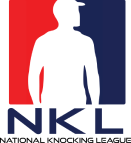Ad 00:06
Can’t Knock This is brought to you by Vis Sarris, a Pest Control distributor making a positive impact on young businesses. Along with the broad product portfolio of top brands. We offer exclusives like the intercare mosquito trap, and with the resources like pro training, inventory manager and pest web, and over 65 locations nationwide, we provide the products and insights to grow your business visit go dot vissarris.com slash knock this to learn more.
Sam Taggart 00:38
We are going to do a podcast live today. Now I’m writing a book called the achievement formula. So I figured I’d actually do a video series along with the principles of this book that I’m writing. So I’m gonna turn a lot of these into podcasts. A lot of them, I’m just gonna kind of chip away. You know, a lot of times, I know a lot of people that are like, I want to write a book one day. And speaking of achievement, well, the achievement would be to publish a book. And a lot of people just talk about these books. And this would be the second book I’m working on.
And, you know, achievement is all about, did I do it? Or did I not do it, and one of the, you know, it’s one or the other. And a lot of times we get the satisfaction of just saying I want to write a book one day, I have this great book idea, but never comes to fruition. So if you do have a book idea, or you have a goal of yours, you know, stop talking about it and do it. So one of my hacks right now is just chipping away a little bit by a little bit done about four segments. So the other book so far, so anyway, if you’re listening to this, and this Facebook Live is working, if not, here’s the podcast, here we go. So this one is just me solo, a lot of times I’ve guests, I’m going to be switching up the interview questions to be interviewing about achievement, and I’m taking a lot of the I think I’ve done 176 episodes. So maybe taking a lot of those principles, and applying this those to the book, which is actually interesting.
Anyway, so if you haven’t heard, I’m going to make the announcement right now. D to D con is January 8, and ninth January 8 is my birthday. So please do not forget that. And we only gonna have 500 people that are so it is limited seating. And you know, the tickets aren’t gonna be cheap, because we have a lot of people that want to come this year. So it’s first come first serve. And we have some really, really cool speakers this year, it will be some high level speakers. And it’ll be geared more towards leadership and business owners not so much towards the sales people. So if you’re just a first year rep, you know, some of the information might just go over your head. But if you’re looking to grow your team, and recruit and scale and run a business, this is gonna be the perfect conference for you. So check it out, DDD con for it’s January 8, and ninth, save the date. And first come first serve on those tickets.
I know we had over 2000 people there last year. So you know, definitely growing as a business and only a fourth of people can come this year. So don’t don’t procrastinate it will sell out. And yeah, sorry. It means just kind of COVID and the limitations that the salt palace is putting on us. So anyway, I’m pumped to talk about this today. We’ve got the topic is imposters wants. And so I’ve got some some book, like notes and things like that, because this is really designed to be helping me write this book. So the first thing is when we talk about achievement, you know a lot of times there’s these imposters wants and the first step in the formula is ask What do you want? And you know, a lot of times we don’t know what we want. And you know so and that’s because we have these imposters wants and the the steps of imposters wants to come into us is the first one is it’s this information overload. And then it goes to ego and tribal instincts.
And then it goes to the forum postures and then the six pressures and I’m be talking about those today. So the first one is the information overload. And you know, in today’s society, we have literally the equivalent of us reading according this article in The Telegraph, it’s it talks about 174 newspapers a day that the average human reads. And if you know back then when you were reading the newspaper, you know that’s a big deal just to like read an entire newspaper, but we average 174 and, you know, there’s 3.5 billion searches on Google every day and then you have For that’s like, that’s 40,000 searches every second, you know, you do the math, and we have gigabytes on gigabytes of download of information every day.
And what that does, it ends up being kind of a distraction. And that’s just a big imposter, where, you know, the average mind is becoming more and more add, can we consume and handle this information? Yeah, well, none of us have like, fallen over dead because we have so much information at our fingertips. But the problem is, is it distracts us from what our true wants are because we see different things and we’d see different squirrels and rabbit holes we could run after, and we end up not really honing down and focusing solely on a craft or a desire or a goal is because the second another shiny object comes along, like, Oh, I could do this marketing thing, or I could do this different way of selling, or I could, it takes away this ability of just sitting with the grind, and doing the work, where we sometimes get that dopamine hit of, Hey, I talked about the work, I read the work, but I never did it.
And you know, a lot of us listen to these podcasts, and we read these motivational books and, and, you know, learning is not knowledge, information is not knowledge. Knowledge is the, that the application of wisdom is the application of all this stuff. And sometimes we have to hone out a lot of this information, so that we have time to actually go apply it and implement it. A lot of us are really good idea eaters. We’re really good consumers, but not very good producers. And I think the Information Age is actually caused a lack of production, because we get that satisfaction from the information. So anyway, the next thing, it’s really just the ego and tribal instincts. And, you know, the biggest imposter is our actual ego, like our self. And, you know, you have to ask yourself, like, hey, why do I want that? Rolex, is that because I want a status or I want an ego, I want to be seen, I want I want, I want the fame, I want the likes, I want the Instagram post or whatever. But the reality is, you know, it’s more important to look into our soul and say, Do I want this Rolex? For me, maybe it’s I have a meaningful relationship with my grandpa, who was a Rolex collector, who then reminds me of to, you know, strive to be much like my grandpa, or, you know, is the Rolex have meaning to me, where it’s like, hey, this, this is a milestone or a gift, I’m giving myself for my hard work for last 10 years of accomplishments.
And this is a status of like, hey, I’ve made it in my own mind. And I could care less if anybody knew I had a Rolex, I care less if anybody saw the Rolex, I could keep it in a drawer for ice, all I care, it’s just, for me, it has meaning is a Rolex bed, no. But it’s, why do I want that. And that ego self tends to be a large imposter, which actually debilitates us because what ends up happening is, as we strive for different sales goals, or we have different statuses, or cars, or houses, or whatever, we end up like hurting ourselves, because we never follow that true, you know, natural self. And we shift out of alignment, and we start to create new identities with people that maybe we don’t really like, like that version of us, we, you know, in X amount of years, we’re gonna grow into this new version of ego. And we’re gonna look back and be like, Who is that?
And the other thing with that is the tribal instinct, you know, we look at, you know, social media, and, you know, all the, the tribes that we’re in, and we don’t want to be outcasted. And so if we don’t have x, y, z, we don’t have this car, we don’t have this, you know, these numbers, this that we haven’t accomplished x, what ends up happening is we feel outcast that we feel, you know, kind of in our own little world, like, you know, it’s funny, I went motorhoming with a guy this weekend and flaming gourgeon, it, you know, he’s just like, I could live in a motorhome for all I care, like, I don’t care what people you know, I don’t need a house. I don’t need this. And, you know, it’s really interesting, because that was kind of his niche. Like, he’s not he’s in creative design.
He’s not in sales. Like, he’s much more free spirit. He has a mohawk and a nose ring, you know, and, and you could tell that it’s like, his world was I don’t I don’t need a flashy car, don’t need a fancy house. We’re in the sales and business world. It’s like, hey, that that is like we’ve made it like we’re fitting in if we have such flash and I think a lot of times we have to check ourselves and say, are we are we trying to feel fit in are we trying are we like feeling outcasted? You know, they talked about tribalism and you know, this birds of a feather flock together and you know, we have this natural tendency for friendships, similar interests and habits. And, you know, you think about like, conformity tribe. So Wikipedia says conformity and it says tribalism has has been defined as subjectivity or way of being social frame, in which communities are bound socially beyond immediate birth ties by the dominance of various modalities of face to face and object interaction. So, you know, I really liked that, because it talks about, you know, like, we’re bound socially, based on this tribalism or conformity, which that’s what’s keeping us stuck is this instinct to knock it outcasted.
And, you know, if you want to be different, you want to achieve a lot, you have to be willing to break the norm, not conform to the social and tribal instinct. Does that make sense? So, you know, this, this dominance of various modalities of face to face interaction, or, and, and you look at, like, who you’re spending time with, and what’s surrounding you, and that, that has so much to do with what you achieve. And so, you know, that leads me to these different four, you know, kind of the forum postures, that you know, it talks about this in the outwitting the devil, you know, schools and religious leaders and parents and things like that. So my foreign postures are simply family, social, and I’m going to I’m going to kind of categorize social as friends, social media, you know, people that we’re, we’re interacting virtually or physically with, and then you have your religious and then your work environment, I’m gonna throw work environment in there because I feel like, you know, as much as they want to be a positive imposter, sometimes they end up being negative. And so all four of these imposters have pros and cons, short term benefit and long term benefit, long term disadvantage, and short term disadvantage. And what I mean by the pros and cons of these imposters is we did a lot of good things, because of our parents. It’s not like our parents were bad people, they had our best interest. But there’s a lot of difference says that we can’t break away from because of the way that we were raised, right. It’s just this was ingrained into our identity from a young age. And sometimes those things aren’t great.
Sometimes those are awesome. They could be great morals, those could be good value systems, they could be you know, positivity, but also our parents might have been really negative. They might have always been fighting they might have always been criticizing they might have already always been, you know, native Nancy and just thought really small. And if we’re trying to achieve big things in sales and business, a lot of times like, that ends up holding us back and so, you know, the, you know, you look at are you look at a midlife crisis, and you know, you ask yourself, like why do people have these midlife crisis is and so if you’re listening or reading this or whatever midlife crisis simply comes from I was doing my I was living my dad’s life for until I was 3040. And then my, my dad died. And then I woke up and I said, Well, I’m not trying to impress anybody anymore.
And, you know, you kind of have this identity of crisis, because you go, what do I really want. And that is the whole, like, root of a midlife crisis is really once a parent dies, and you’re kind of like, I’m not, there’s nobody that’s like looking at me and paying attention to who I am and what I’m doing all the time. And so, you know, you like, take the example of basketball, it’s like, let’s say your dad loved basketball as a kid.
And he grew up playing basketball at high school, he didn’t go to college, you know, and then all sudden, you know, you’re his kid, and he’s like, dude, we’re gonna like learn basketball, and you start to love basketball, and you’re like, your dad’s like, I’m gonna take you to basketball practice, I’m putting on all the competitive leagues. XYZ. And, and there’s this kind of natural internal pressure to succeed a basketball, because that’s what your dad really liked. You know, and then all of a sudden, you grow up and, you know, you’re kind of like me and do I do I even like basketball?
You know, you’re on a practice and you’re doing this thing and dad sitting on the sidelines, like, Yeah, you got it. So in your starter like, and then there’s a there’s a point in time where you kind of realize, like, maybe you know, maybe you graduate, maybe you get married, maybe you move on, and friends invite you to go play pickup and you’re like, do I really like basketball? Or is that like what my dad always wanted me to do?
And that’s like a perfect example of, you know, where and imposters want. Had you by the balls, when you didn’t even know like, you didn’t even you didn’t even realize it and probably enjoyed some of the time playing basketball. But, you know, you never really checked in with yourself and said, Is this what I want? You know, the next one would be social. And in the sense of, a lot of this comes from status and you look at like, social media, and you know how many followers how many likes how many, you know, Whatever subscribers, and that has so much to do with how you drive achievement, it’s like, Okay, I need to sell more, I need to do more. Because, you know, if I don’t, then I’m kind of like a bomb on social media, you know, as my Tick Tock videos, the best is my, you know, Facebook videos the best and, you know, there’s this kind of pressure to, to perform socially. And, you know, with your friends, you go to a 10 year reunion, and everybody sits in a circle, especially the, the masculine or male culture is, you know, the first question you’re going to ask would be, you know, Hey, how are things? And then what do you do for work, you know, if you’re in a 10 year reunion, there’s this natural, like, pissing match between men is they kind of haven’t seen each other a long time, and they establish their dominance, it’s a tribal thing. And, you know, one man, it’ll eventually stand out, probably within the first 15 minutes, you know, this dude, dudes all get together, you know, ask yourself, when you’re listening to this be like, when is the last time I was in a male situation. And, you know, all of a sudden, you know, the dude that’s making the most money and has the hottest wife, you know, all of a sudden becomes the, the, the macho, he becomes the alpha male in this in this situation, and then you watch all the other people kind of turn and start listening to him and, and kind of back down and, and pay their respect and, and their dues to the alpha male in that situation. And it’s just funny to pay attention to these social interactions, and how that status and achievement has so much to do with how you feel.
And in these tribal situations. And so a lot of times you kind of have to ask yourself, like that ego self is that showing up is that being like, man, I need to, I need to be the alpha male in these situations, I need to be seen, I need to be status, I need to have the right cars and the right house on Instagram, or whatever that is. But is that now check yourself and say, is that what I really want? Like, and why do I want that? That’s all part of this formula. So the next one would be religious. And this one’s a big one for especially sales in business is, can’t make money because you’re of the devil. And you’ll turn good hearts in, you know, money, alternatives, good hearts into evil energy.
And that’s something we’ve been taught like, hey, it’s easier for a poor man to make it to heaven than a rich man, or, you know, talks about that, you know, it’s like fitting a camel through the eye of a needle right in the Bible. And you’re like, Okay, so this has been ingrained in my head yet. You know, you look at any business, or church, a lot of them are very business II. And they’re very flashy, they’re very hot, a lot of money. They’re very, like, make a lot of money. So you can pay us a lot of tithing. And yet, there’s this contradicting message where it’s like, no, don’t make a lot of money, because then you won’t go to heaven. And it’s like, from a young age, a lot of us have been ingrained with this, this want of that religion to say, don’t make a lot of money.
And it’s like, oh, well, now I’m conflicting because this society, my dad, everybody’s telling me to make money, and then the Bible and God says, Don’t make money because you’re the devil. And you’re like, what do I do and now creates this, this, you know, out of alignment situation, right? You’re kind of like, What do I do? And so, a lot of times, you know, you have to ask yourself, like, Okay, what am I? What am I paying attention to in the religion? Like, what, what is my soul asking for? Whatever, what do I really want, it’s like, you can be humble, and still make good money and still live a good life and still be very generous, you know, you look at like, anything that’s really come from massive impact from a humanitarian, comes from people that have a lot of money, and, you know, from, you know, African orphanages, to school systems to, you know, it’s the donation of tax money. It’s the donation of tithing, it’s the donation of charity.
And those come from people that make money and I think a lot of times, you know, we we get scrutinized for making money and that brings us down and so you ask yourself on this imposters wants is this religious want trying to suck you back into the conforming? And, you know, it’s it’s a sense of control in my opinion. And, you know, you got to ask yourself, like, What do I want? what the book says not what the priest says not what, you know, like what what is it that I’m choosing to get and And why is that? And then the last one is your work environment. The fourth imposter would be your work environment. And this one’s important. The work environment is a either huge pro or huge con to the want is much as you don’t want to admit, if you had 10 salespeople in your organization and all 10 of them, were making $50,000, it’d be very hard for you to go make a million dollars that year. Despite how good you are, despite your drive and how motivated you are, you’re going to conform to the wants of everyone else. So nobody wants you, as much as they say, I want you to make a million dollars, even though they’re making 50, inside the energetic level is going to pull you back because they’re going to say, I don’t want you to make a million dollars that will make me look like an idiot, I want you to make around what I’m making. So I don’t look like an idiot. So I’m going to subconsciously sabotage you, so that you don’t look too much better than the rest of us. That is what an environment does. And a work environment is going to play that game, a boss is going to play that game, your boss might not be as good as you I had a manager that I crushed, I sold twice as many as him and it was almost like, I felt guilty.
I felt guilty when I sold twice as many as the manager that was above me. And you know, every dad kind of be like, hey, how’d you do? And, you know, he’s my boss. And I’m like, well, he’s like, you know, I got one or two. And I’m like, Oh, I got five today. And I didn’t want to say that. I’m like, Oh, yeah, yeah, he had a good day, like I’m learning from you. Like, I didn’t know how to handle this. And I eventually had to leave that boss, I had to go to somebody that was going to uplevel me in a different way. And, you know, I think that a lot of people get trapped in these work environments because of this friendship, or because of this social pressure of their tribe, that that holds them back from selling what their true potential is, or that holds them back in business. They’re like, I’m ready to freakin soar like an eagle. But you guys are all these chickens over here and you’re flapping on the ground. Like, how am I supposed to go do that?
Now, Asterix, that doesn’t mean the grass is always greener wherever you go. That doesn’t mean you couldn’t perform where you are. I’m just saying that these natural unsaid wants of the work imposter can either be detrimental, or it can be astronomically beneficial. Take the opposite. I have a manager that sowing 10 a day, whatever that is, and, and everybody on my team is making a million dollars, I’m going to be like, fetch, I’m used to making $40,000 as a mechanic, like there is going to be this natural imposters wants they want you to not be this loser bomb on a log. Well, they’re all making a million bucks.
And you’re sitting there just like pooping, like on a wall. Like that is not what they want. They’re gonna naturally outcast you the other way. So there’s pros to these imposters wants, but you have to be super aware of, well, maybe it isn’t that I want to make a million dollars. And I’m in this environment where everyone is making a million dollars. Maybe I’m happy making $60,000. So then you have to ask yourself, okay, am I in the right environment is there just natural, like friction in this work environment of their wants versus my wants. And I’m like really checking in internally and not justifying sucking Asterix. You’re not justifying, you’re not trying to like talk yourself into sucking.
You’re actually Okay, making $60,000. Like, in your mind, like, like, you’ve wrapped your head around like that’s comfortable, I want to live a better life, I don’t, I don’t want to be stressed like them, I don’t want to be working 7080 hours a week, I want to work 30 hours a week and make 60,000 bucks and spend time with my family like, and you’re not letting the imposters wants to shift you out of alignment. And that would be a huge piece there. So now that you’ve got these four imposters wants me to talk about the six types of pressure. And these come from all types of these imposters and you know, any of these pressures can happen in any situation. And the first one is growth pressure. So let’s take you know your your dad, and you know, maybe he was you know, he’s he’s striving He wants you to succeed. So he’s putting a lot of pressure on you to succeed and grow as an individual is like you better rereading the books and you better be practicing the piano every day and you better read this, you know, he’s really putting this pressure on. It’s like, do I want to do that. And sometimes you got to do things you don’t want to do. And but when we’re talking about achievement, you got to figure out what you want to achieve.
Because if you’re reading this book, hopefully you want to achieve more. And whatever you’re doing, hopefully is you’re motivated to say I’m clear on I want to make $100,000 or I want to make, you know XYZ a year I want to do X so hopefully you’re motivated just by simply what you’re looking to achieve. And sometimes you don’t want to do the things habitually that it takes to achieve that but you know, there’s sometimes there’s this natural growth pressure that you know, religion or family or social can put on you. Second one Be your box pressure. Now this one tends to happen from a work environment, family environment. Let’s say your your dad was making, you know, $40,000 a year his whole life. All sudden you start to make 60,000 70,000 Your dad is going to naturally be like, whoa, whoa, you know you you’ve been working too hard. You need to spend more time with us. Whoa, whoa, whoa, like it. Subconsciously he may sabotage and put this box pressure like, oh, what are you trying to do like being all, like, making way more than the rest of us? You know, I have a lot of respect for the Polynesian culture. And this is no offense to them.
But I’ve noticed a lot of times, the second any kind of kid or an individual tries to go and be something special and go crush it in life. They are so tight knit as family that it’s almost like they get the they get the the cold shoulder like Oh, you’re trying to just like you think you’re better than all of us. You think that you can go make x and and you’re you’re leaving our family. Like, there’s this natural and I’ve seen it with some of my Polynesian friends. I’m like, wow, like, That’s rough. Like, and and and then they just get sucked back because they’re sick of they’re sick of like, just beating that dead horse. And they’re just like, wow, like, it’s not worth the fight, whatever, I’ll go do what everybody else is doing and work on the farm or do whatever like they’re doing. And it’s like, that happens so much in a work environment. It’s like, Oh, yeah, and then they’re like, I felt this I was a number one rep. And I felt like even Oh, and then there’s Sam, you know, just trying to show off like every day, you know? And it’s like, why, like, that little murky comment is boxing me that’s a boxing pressure. It’s pressure that I’m now feeling to feel trapped in your box, whatever that is. Then there’s status pressure, there’s this natural status to you know, that society’s giving us that we’ve accomplished x, like $100,000 seems to be some weird status, a million dollars seems to be another weird status. Anytime I go ask, Hey, how much do you want to make anybody who hasn’t made real good money in their life? They’re like, Oh, six figures, Mike. Well, is that like a zoo? Now you can say there’s a status that now I’m making six figures. And if you’re making $99,000, and it’s only five figures, you’re like, not good?
Like, what, what, what is this weird, arbitrary number that creates the status. And, you know, I think that there’s this pressure of what we have in perception, but that all has to do with family, religion, your social and your work environment. You know, if you’re in a in a stock brokers world where every single person’s pulling in extra millions of dollars a year, then the status is not $100,000. Like you have not made a status. So that all is dictated on environment. It’s all dictated on these four imposters. And so it’s kind of like, what’s the status that I care about? And you’ve got to check yourself this is the ego self? Or is it the soul self that saying, I know the status I’m after, because I don’t really care about status. I’m just, I care about my family, I care about me, I care about what I’m really after. The image pressure is huge, where, you know, what clothes are you wearing? What’s your body look like? You know, a lot of people physically have this weird image pressure, there’s a lot like, why do you think plastic surgeons do so well, is there’s just natural pressure to have some set some type of image. And somehow we we made it up since Barbie, you know, Barbie and Ken, they put this natural image of like what a perfect female and male do to look like, right?
And now it’s like, what, what is the image that we’re all after? And then ask yourself, is that the image that I care about? Is that coming from ego? Or is that coming and trying to fit in? Is that tribal is like, Where’s that? And then like, what do I want. And these are all designed to keep challenging you the other one is the second chance pressure. And this one tends to be in the family category. Where or or boss. It’s like your your your let’s say your dad was never great at football. And you know, he sees that you’re maybe even a little bit more talented than than him he might try to live his life his second chance through you. He might say man, this is my opportunity to to make it collegiate or pro and so I can go live that life through my my son or my daughter. And um, you know, in sales, a lot of times there’s this boss mentality where it’s like man that like, you know, I’m sitting on my throne I’m hanging out like maybe I get my second chance through watching so many people so I’m going to put this weird pressure on them.
That’s almost self self like serving. But now go back to like, what is it that I Want, is it an imposter want? Or is it my want, and then assumed pressure is sometimes we just assume pressure that’s not even there. You know, there’s like, in all, in a lot of marriages, it’s like, hey, I need you to do this. It’s like, I just, I think she needs me to do this or that. And in sales, there’s this like, natural assumed pressure, and we assume the boss, we assume the sales dudes are gonna, like, you know, think less of us, if we don’t perform x, so then we just naturally assume that there’s pressure and so we throw down, but if had we not thrown down, it’s not like they’re gonna eat us, they’re not gonna, like, shoot us, we’re not gonna die. And so there’s this assumed, unsaid pressure that sometimes we self impose. And that comes from the ego, it comes from misinterpretation actually comes a lot from insecurity. And so those would be like the six pressures. And so if we kind of look at the repercussions of imposters wants, you have imposters wants are short lived, meaning that they kill consistency, eventually, it’s going to create burnout. So if if you’re you’re all full of all these imposters wants one day you’re gonna wake up and not have any drive. And if it’s truly your want, that’s what creates drive. That’s what creates long term, like endurance achievement, because anything worthwhile achieving takes hard work, it takes consistency, it takes time. imposters wants to come from overload of information imposters wants Cloud Identity and that’s the last one I want to talk about.
So in when this in this clouds, your identity and most people live out of alignment of their identity because they’ve never taken time of introspection to actually figure out what their identity is. Who am I as an individual? And what do I stand for? What’s my image that I care about? What’s my status, I care about? What’s my achievement that I want to care about? And they’re living their parents life, they’re living their boss’s life, they’re living their religious life, they’re living a life, that isn’t their identity. And they have this insecurity as if they were to live their life. People won’t like them. They won’t be accepted. And, you know, my invitation is as you listen to this in a sales environment, in a business environment, and to ask yourself, like, what is the business identity I want to embody? Is it is it top performer is my identity like I am a frickin baddie, like I throw it out? That’s the identity that I choose? Or is it like, I’m the middle of the pack? I’m cool with that, like, that’s what I’m choosing, because XYZ and you know, then then then ask yourself, Am I justifying my identity, because of my unwillingness to get uncomfortable and push beyond my edge. And my invitation is, if you really want to achieve success, is you’ve got to get uncomfortable in your own identity and challenge your identity.
Sometimes our identity is actually what’s impeding us to succeed, is because we have cemented in our relationship to success due to patterns of performance in the past. So it’s rooted in I am, like, for example, I’m not a runner. I’ve never ran, I don’t want to be a runner. So my identity around running was, Oh, I’m just not a runner. I have this problem. I had this problem with running until I chose to change that identity. Now I’m a runner, I ran a mile and a half this morning. I ran five miles on Saturday, I ran a marathon a couple months ago. And now I have a new identity with running I like running. Same thing with swimming.
So yesterday I did an open water swim and Flaming Gorge. And, you know, I currently have an identity as I’m not a swimmer, I’m going to drown I’m going to like and yesterday I was literally huffing and puffing I’m way in better shape than the people I was swimming with. And I was like, I was like anxiety attack because I’m not a swimmer. That’s my identity. Well, the Fun Fact is, I’m the one that created that stupid identity. My body is fully functional. to swim, I just need to practice it. I just need to change my belief system around it. I just need to actually apply myself and I’ve become a swimmer. So some advice here if you want to achieve some massive success, sometimes you’ve built a false identity that you need to challenge and live pushing beyond that edge and break through the comfortability.
So anyway, hopefully you enjoyed this podcast, this is a series I may be putting together about the achievement formula, which is derived from the book, Matthew seven, seven. Ask and you shall receive, seek and you shall find, knock and it shall be opened unto you. And that’s the simple formula and coming from our boy Matthew. And anyway Hopefully you guys enjoyed this. If you did, please leave a comment and give us a review, share this and we will see you guys on the next episode.























